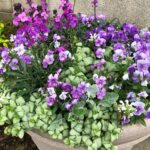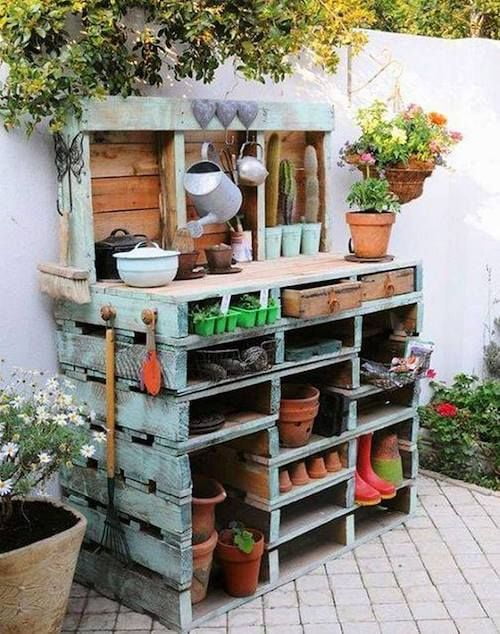Introduction
Borax is an amazing mineral that has many uses in the garden. The most common type of Borax used in gardening comes from a naturally occurring salt called sodium tetraborate, or boron oxide. This mineral can help to enhance soil fertility and fight off pests such as weeds. Borax is also a natural fertilizer, as it helps to add vital elements such as potassium and magnesium that are essential for healthy plant growth. Additionally, Borax can be used to treat fungus and reduce sod shrinkage, making it a great choice for organic gardens.
Borax has multiple uses in gardening: First, it is used as a soil amendment to adjust the pH levels of the soil; this helps create an environment where plants can thrive by providing the right conditions for healthy root growth and vitality. In addition to adjusting pH levels, borax can also provide essential minerals such as phosphorus, calcium and iron that are necessary for plant health. Secondly, borax functions as a natural weed killer; since it reduces the ability of germinating seeds from growing into full-grown plants, adding Borax to your garden will help reduce weed infestation naturally. Lastly, Borax can be used to combat fungal diseases; it contains antifungal properties that make it ideal for preventing mildew or mold. With its versatility and affordability, borax is an excellent addition to any organic garden!
Benefits of Incorporating Borax into Organic Gardening
Borax, or sodium borate, is a natural mineral with many uses in organic gardening. Used as an ingredient in fungicidal and insecticidal products, it is a great way to reduce the amount of harmful chemicals used on plants in an organic garden. It can also be used as a fertilizer and weed killer, making it a multi-purpose product for any gardener looking for environmentally friendly options for their garden.
Using Borax in an organic garden comes with several distinct benefits. Firstly, it helps to keep pests and fungi from damaging plants by creating an inhospitable environment for them. Secondly, Borax is not toxic like some commercial pesticides and fertilizers, reducing the risk of contamination to local ecosystems and water supplies. Additionally, it can help improve soil health by increasing the availability of important nutrients such as magnesium and calcium while also providing long-lasting protection against alkaline soil conditions. Finally and perhaps most importantly, Borax is inexpensive compared to other options, giving gardeners more control over the cost of maintaining their home gardens..
Tips and Tricks for Using Borax in Organic Gardening
Borax, otherwise known as sodium borate or sodium tetraborate, is a natural mineral salt often used in organic gardening. It is mainly used to control the growth of weeds and pests and helps fight diseases in plants. It can also be used to add essential minerals like phosphorous and manganese to the soil. Due to its low toxicity, it is safe for use in both food gardens and ornamental landscapes.
In addition to helping eliminate weeds, pests and diseases, borax can also be beneficial for helping plants grow better. The minerals present in borax can act as a fertilizer, providing essential elements like phosphorus, potassium and copper which help strengthen a plant’s root system while promoting its overall health. Borax can also be combined with other material such as sawdust or vermiculite to give plants an extra boost of nutrients while keeping soil light and airy at the same time.
Borax should always be mixed with water before applying it directly on your garden beds or lawns. To control pests on vegetables or fruits, you may mix one teaspoon of borax with one gallon of water and spray directly on affected areas. For flowers or shrubs, mix two teaspoons of borax with one gallon of water for best results. As for general applications for improving soil fertility or combating disease,mix four tablespoons of borax with one gallon of water per 10 square feet.
When using borax in organic gardening it is always important to remember that too much can actually burn the foliage or roots on certain sensitive plants so problems like this must be avoided by being accurate with measurements when mixing and applying it on plants throughout your garden beds or lawns .
Important Safety Measures When Using Borax in Organic Gardening
Borax, also known as sodium borate, is a natural-occurring mineral that can be used as a soil amendment in organic gardening. It can help improve soil quality, increase water retention and provide essential nutrients to the plants. However, it’s important to follow some basic safety measures when using borax in organic gardening in order to avoid potential health risks to yourself and others.
1. Wear protective clothing – Always wear gloves, long-sleeved shirts, and long pants when working with borax or when you’re anywhere near the treated area. This helps protect your skin from any contact with the product that may occur accidentally.
2. Keep away from waterways – Do not allow any runoff containing borax to enter a stream or other center of aquatic life such as a pond or a lake, no matter how small the amount is.
3. Ventilate space well during application – When applying borax, open all windows and doors if possible for maximum ventilation which will decrease airborne concentrations of the product inside your home or garden environment.
4. Do not allow children or pets near treated areas – Make sure children and pets are kept away from treated areas both during and after application of the borax. This ensures they won’t come into contact with any residues left on surfaces such as plants or soil particles that could potentially cause harm if ingested accidentally.
Common FAQs About Borax Organic Gardening
Q: What is Borax?
A: Borax is a mineral salt most commonly used as a laundry additive, but it also has many other uses around the home. In terms of organic gardening, borax is an all-natural pest repellent and soil conditioner. It can be applied directly to plants to ward off certain pests, or mixed into the soil to improve its quality.
Q: How do I use Borax for Organic Gardening?
Sprinkle borax on the surface of your soil, avoiding plant foliage and roots. A one-time application is sufficient for existing plants, with additional applications needed for new plants added during the growing season. As a deterrent against insect pests like slugs and snails, sprinkle dry borax along pathways leading to your garden to create an invisible barrier that will repel them from your crops. Additionally, you can add 1-2 tablespoons of borax per gallon of water when watering new seedling beds and containers. Doing this prevents fungi from forming in soggy soils and helps reduce damping off in young plants.
Summary
Borax is an organic mineral that provides a variety of benefits for the organic garden. It can foster healthy plants and healthy soil, since borax promotes natural enzymes in the soil and helps to reduce plant disease susceptibility. There are a number of ways in which you may incorporate borax into your organic garden.
Borax can be used either as a fertilizer or as a pest control agent. When added directly to the soil, it binds with micronutrients and keeps them in an available form for plant uptake. It also buffers the pH of your soil and prevents it from becoming too acidic or alkaline. As an insecticide, Borax will repel insects such as aphids and slugs by blocking their digestive enzymes and dehydrating them.
Additionally, Borax can help improve aeration, drainage, and moisture availability in soils. This is because it is comprised of sodium (which strengthens clay bonds) and borate (which breaks down clays). By promoting healthy soil structures, borax enables plants to receive adequate levels of oxygen, moisture, and nutrients for better overall health.
Finally, Borax also acts as a fungicide when mixed with water at certain concentrations; this makes it useful for treating fungal diseases like root rot or blight. The fungicidal property of borax is particularly important for gardeners who choose not to use chemical fungicides due to their potential toxicity to beneficial organisms. As well as actively protecting against fungal illnesses, regular applications of borax can help prevent fungi from appearing in the first place by inhibiting spore production on plant surfaces.

Welcome to my gardening blog! I am passionate about plants and enjoy sharing my knowledge and experiences with others. In this blog, I will write about everything related to gardening, from tips on how to get started to updates on my own garden projects.





